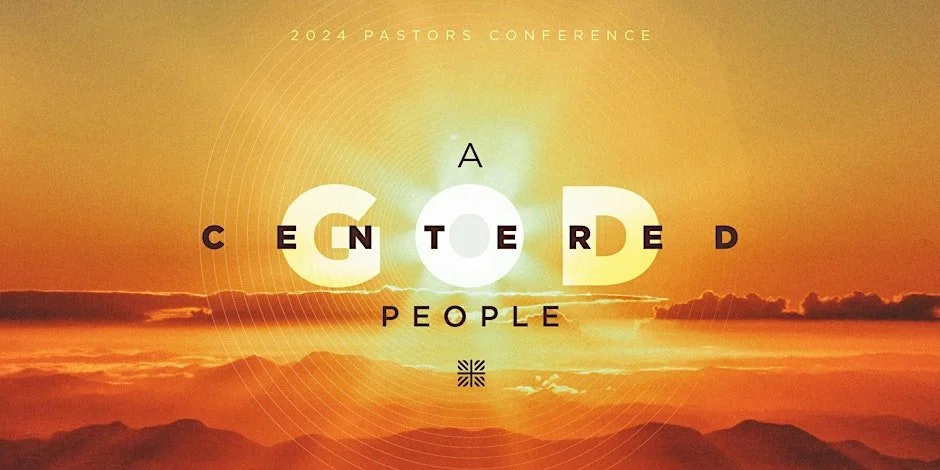What makes a good congregational song?
I’ve wrestled with that question for decades, not only as a songwriter but as a pastor in my local church. Of course, crowds sing together loudly in a variety of places — college football games, Taylor Swift concerts, school choirs, birthday parties — but singing with the church is unique and sacred.
Why? The church is the body of Christ, a temple being “built together into a dwelling place for God by the Spirit” (Ephesians 2:22). We sing so the word of Christ might dwell in us richly (Colossians 3:16). And when we gather, our church isn’t alone. Our little choir of earthly voices joins with the choirs of heaven and “the assembly of the firstborn who are enrolled in heaven” to extol the Lamb who was slain (Hebrews 12:23; Revelation 5:11–13).
So, for the church, singing matters. But what kinds of songs should we sing?
What Makes a Song Good?
What makes a congregational song “good”? We’re going to look at two characteristics briefly and then spend most of our time on the third.
First, a good congregational song is one that people actually can sing. It’s not hard to pick up because the melody repeats or is easy to follow. Songs that contain unexpected twists or jumps can be confusing. Likewise, people tend to go quiet when a song’s range exceeds the vocal abilities of the average human.
Second, a good congregational song is one that people want to sing. People comment on how much they enjoy it. The melody grows on you rather than sounding tired by the end of the song. That’s why a theologically rich lyric can go unheard for decades, if not centuries, when it’s wed to the wrong melody. The popularity of songs like “Amazing Grace” and “Before the Throne of God Above” skyrocketed after they found a melody people appreciated.
“Our songs should reflect the whole counsel of God’s word and make God’s priorities our own.”
Third, and most importantly, a good congregational song is one that people should sing. That means the lyrics are rooted in God’s word. But that raises some questions. Does quoting Bible verses make a good congregational song? Should we only sing the Psalms (and I know some who would say, “Of course!”)? Should we set our systematic-theology textbooks to music? How much of the Bible do we need to include to make a song biblical?
Who Decides What to Sing?
These questions matter because the responsibility for choosing what songs to sing has increasingly become a local-church issue. In years past (and still among some churches today), denominational leaders sought to protect churches from heresy and lead them in biblically appropriate expressions of praise by publishing hymnals. The message was clear: “These are the songs we want our churches to sing.” They were curators of the church’s song diet.
Today, the de facto curators are YouTube, Spotify, Apple Music, conferences, and radio. We can still use hymnals, but we also have access to more songs than at any other time in history. But I can confirm from personal experience, they aren’t all good. So, how do we determine if a song is biblical? And what makes a song unbiblical? That’s a question I posed on social media recently. After citing wrong theology, many voiced common complaints like “too many first-person pronouns,” “too much repetition,” and “too focused on emotion.” Others simply typed the name of a song.
Even though I don’t believe God requires us to limit our repertoire to the Psalms, they show us that he welcomes a wide diversity in our songs. They can be short, long, or somewhere in between (Psalms 117; 119; 89). They can enable us to speak to God, others, or ourselves, sometimes in the same psalm (Psalms 86; 100; 62:5–7; 42). We have psalms about God and about us (Psalms 145; 133). And when it comes to first-person pronouns, Psalm 71 contains 58 of them in 24 verses. God gave us psalms that never repeat and others that say the same thing 26 times (Psalms 2; 136). Some psalms explode with emotion, while others are more doctrinal (Psalms 150; 111). They give us words for rejoicing and reflecting (Psalms 47; 23). They tell us there’s a time to praise and a time to lament (Psalms 96; 38).
In other words, determining whether the words of a congregational song are biblical or not is a little more nuanced than we may think.
What Makes a Song Unbiblical?
Let’s start by looking at what’s not biblical. An unbiblical congregational song can be defined as one that doesn’t line up with the whole of God’s word in truth, tone, or emphasis.
Truth
If a song contradicts what Scripture teaches, we shouldn’t sing it. Lyrics that deny our need for substitutionary atonement, ascribe worship to someone other than the triune God, or dismiss the reality of eternal punishment are heresy and have no place in the church’s repertoire.
But lyrics can be unbiblical in more subtle ways. They can be vague, unclear, or easily misinterpreted. Sometimes, in an effort to be creative and impacting, writers use phrases that distort or even contradict biblical truth. But Paul admonishes us to “let the word of Christ dwell in you richly” as we sing (Colossians 3:16). He also instructs us to make sure everything we do in our meetings is intelligible (1 Corinthians 14:6–12). That includes our song lyrics.
A song is also unbiblical when it veers from or ignores Scripture’s categories, themes, topics, or aims. While I’m in my car, there’s no problem singing about how happy I am without giving any reason. But when the church gathers, we’re meant to focus on God’s glory in Christ, not simply how we feel (2 Corinthians 3:18; 4:6).
Tone
A second way a song can be unbiblical is in its tone. While the Psalms didn’t come with a soundtrack, they model a variety of ways to express ourselves in song. And in each case, the tone, or feel, is connected to and driven by the content. We have no examples of unrestrained passion disconnected from a clear view of God’s works, word, and worthiness (Psalm 33). We never find emotional repetition without consistent reminders of why we should be so affected (Psalm 136). Nor do we encounter language marked by sensuality or flippancy, but rather by love, honesty, humility, reverence, awe, joy, sorrow for sin, gratefulness, and an ever-present desire to know and follow God’s ways.
The tone of the Psalms is a balance of doctrine and devotion, mind and heart, edification and emotion. We aren’t meant to sacrifice one or the other. So, a biblical song is one that intentionally seeks to engage the affections through the realities of who God is, what he’s said, and what he’s done and is doing.
Emphasis
Emphasis offers a third way we can evaluate the biblical faithfulness of a song. Our songs should reflect the whole counsel of God’s word and make God’s priorities our own.
Of course, not every song will contain a perfect balance of Scripture’s teaching on a topic, or everything that could be said. But some songs present an aspect of biblical truth in such a way that they undermine, distort, or minimize other biblical truths.
“If the only theology we received were contained in the songs we sing, how well would we know God after five years?”
For instance, singing that God is going to bless us or “give us the victory” with no mention of suffering, God’s sovereignty, or the benefits of endurance can be easily misunderstood and wrongly applied. Other examples that might fall into this category include songs that speak of God’s relentless love with no mention of Christ or the cross (Romans 5:8; 1 John 3:16), lyrics that never say whom we’re singing to, or songs that give the impression that seeking to live holy lives doesn’t matter.
What Makes a Song Biblical?
While not exhaustive, these are some marks of an unbiblical congregational song. But the more important question is, What makes a song biblical? Biblical songs not only use actual Scripture but reflect Scripture’s priorities and categories. They give us the opportunity to cultivate or express scriptural affections. They are clear, undistracting, and contribute to building up the unity of the church (1 Corinthians 14:12, 26; Ephesians 4:3).
Above all, biblical songs enable the word of Christ to dwell in people richly. They can be described as theologically driven, rather than simply theologically aware. They take into account the Bible’s redemptive story that begins and ends in Christ. In that way, biblical congregational songs provide music and lyrics that lead us toward conformity to Christ in our minds, hearts, and lives. They teach us, move us, and compel us to live in a manner worthy of the gospel of grace in the power of God’s Spirit.
Can every song we sing achieve those goals? Probably not. That’s why, if we want to be biblical, we need to evaluate our song diet as a whole. What our songs say over time is just as important as what they say individually. So, it’s helpful to ask ourselves this question: If the only theology we received were contained in the songs we sing, how well would we know God after five years? Your answer will give you insight into how biblical your songs are.
Songs are just one part of our gatherings, but God can use them to transform lives from one degree of glory to another, until we see him face to face. Let’s make the most of the opportunity.
Bob Kauflin’s article What Should We Sing? How to Identify a Good Worship Song was first published on April 18, 2024 at Desiring God and reposted here with permission.
Bob Kauflin (@bkauflin) is director of Sovereign Grace Music. He equips pastors and musicians in the theology and practice of congregational worship and serves as a pastor at Sovereign Grace Church in Louisville, Kentucky. He is the author of True Worshipers: Seeking What Matters to God. Bob and his wife, Julie, have six children and a growing number of grandchildren.






